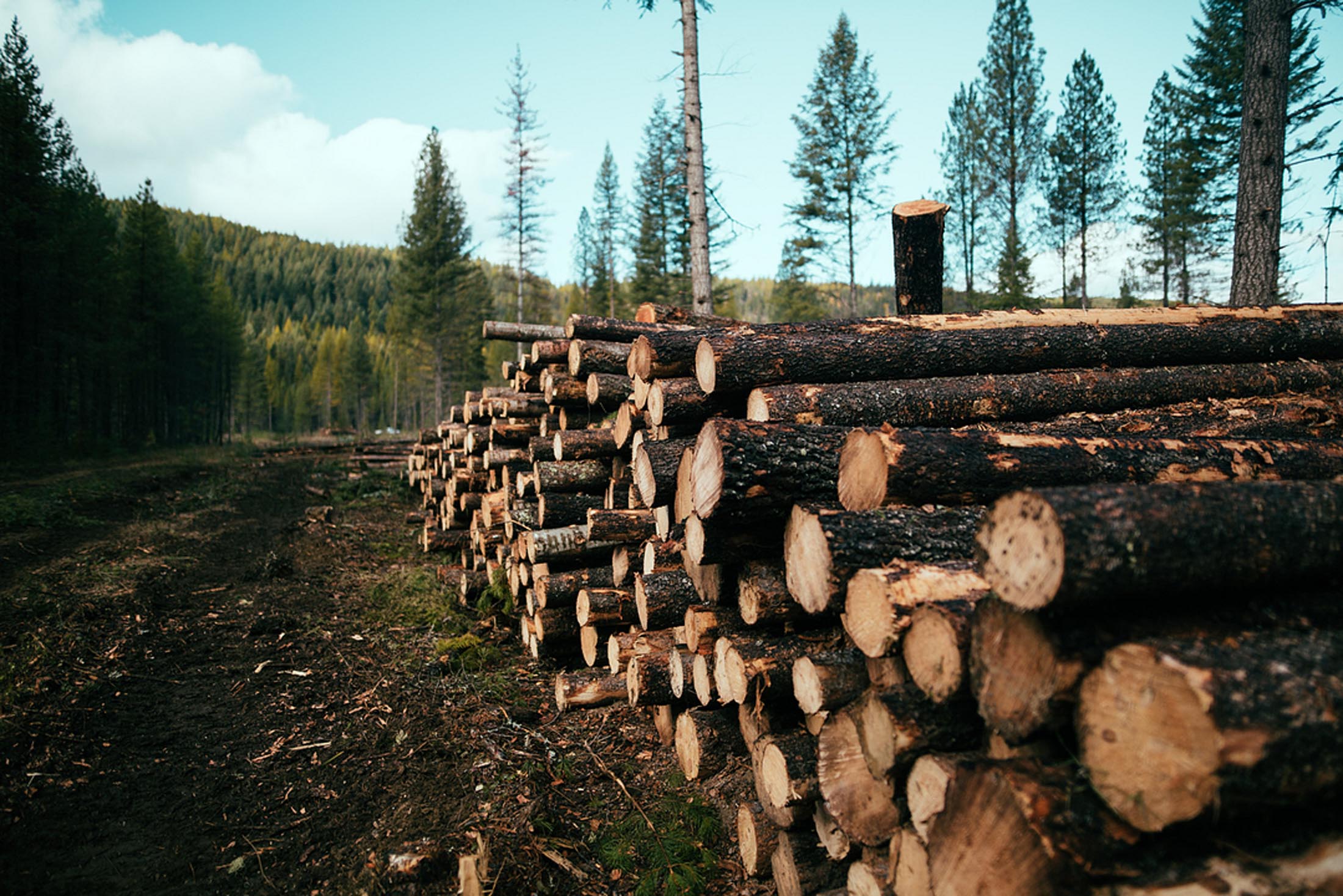Sustainable Forestry

Our Commitment
We rely on forests for timber to make our wood products and are committed to managing forests today in a way that means there will be an abundance of healthy, diverse forests in the future.
Healthy forests provide value to society in many ways. Trees help protect air and water quality, supply important habitat for wildlife, offer recreational opportunities, and provide forest industry careers as well as economic value.
We are committed to responsible forest management principles that help protect and conserve forest habitat and biodiversity. We use loggers who have been trained in practices to comply with state and provincial laws to protect conservation values and culturally important sites. Their training also includes measures to protect water quality and conserve wildlife habitat.
Each year we work with a third-party to assess the risk of impacting biological diversity in our supply basins. Where applicable, we participate in risk mitigation efforts as part of our certification program to promote education and outreach efforts for loggers, landowners, and our procurement associates to continuously improve the conservation of biological diversity.
Because forests are vital resources to our planet as well as to our business, we are committed to sourcing wood from responsibly managed forests.
We do not own forestlands, but we take steps to assure our customers and consumers that we are legally and responsibly sourcing the wood we use. Our goal is to ensure all wood fiber: 1) comes from sources that are compliant with country, region and local regulations and laws, and 2) is harvested in a manner that balances the needs of the environment, wildlife, and surrounding communities.
Here are a few ways that the wood we procure meets our expectations for maintaining healthy forests:
- We have foresters on the ground in our wood basins who have extensive local knowledge of forestry operations and maintain strong relationships with suppliers.
- We maintain wood accounting data so we can track all sources of wood back to the county or forest district of origin.
- Our suppliers must agree to rigorous contract requirements to provide legally harvested wood, which includes the protection of threatened and endangered species, and use loggers trained in responsible harvest practices. They must also ensure all voluntary and mandatory forestry National Association of State Foresters (NASF) Best Management Practices (BMPs) are followed during harvest to protect water quality.
Because our suppliers play an important role in allowing us to maintain our well-respected reputation, we expect them to conduct business in ways that align with our values and adhere to our Supplier Code of Conduct.
We partner with forestry industry experts to assess the environmental and social risks of our fiber supplier basins and procurement practices. One hundred percent (100%) of the wood procurement for our manufacturing locations is verified annually by a third-party to meet the requirements of the SFI Fiber Sourcing Standard.
Fiber tracking: We have systems in place track all primary and secondary fiber back to the district of origin. Our fiber supply agreements contain provisions that require all suppliers to provide forest source data. For all indirect fiber supplies, we have implemented an annual supplier audit process to monitor origin information and gather evidence of supplier tracking capabilities.
Understanding where all of our fiber originates is a responsibility that our foresters and purchasing agents for wood products take very seriously, and it is a key element of our due-diligence system.
We set expectations with our suppliers through communication of our procurement policy and comprehensive set of terms and conditions that are legally binding. Read more about our policies regarding Wood and Forest Based Product Procurement Policy.
Timber legality: Beyond our commitment to sustainable forestry practices for the wood used in our manufacturing operations, we apply those principles to our building materials distribution division as well. Our distribution centers routinely source secondary wood material from nearly 20 countries around the world. When doing so, we have an ongoing commitment to our goal of sourcing all wood-based products in compliance with the U.S. Lacey Act requirements for legal harvest and transportation of imported wood-based products.
Other ways we demonstrate our global commitment to legal and ethical forest practices is by contractually requiring all global suppliers to share information about species and country of origin; the country’s required legal documentation; and forest certification information.
We are committed to the continuous improvement of people, processes, and the quality of products that we deliver. Each of our business locations have autonomy to further these initiatives through using their knowledge and experience to solve problems, make decisions, and implement new ideas.
Boise Cascade is an active member in many national, regional, and local organizations that help us uphold our commitment to excellence when it comes to sustainability such as:
- National Association of State Foresters (NASF)
- The Nature Conservancy (TNC)
- Sustainable Forestry Initiative® (SFI)
- American Wood Council (AWC)
We are a member in National Council of Air and Stream Improvement (NCASI), a leading forest product manufacturing and forestry research organization. Participation in NCASI gives us an avenue to proactively impact research initiatives that promote protection of threatened and endangered species, increased efficiency in wood utilization, responsible chemical practices in forestry operations, and many other areas critical to sustaining healthy forests.
Local procurement foresters actively participate in SFI® State Implementation Committees, which provide landowner outreach activities to promote educational tools and resources about forest best management practices.
We also participate in promoting education and training of logging and harvesting professionals in the U.S. The goals of the forest industry’s education program are to increase awareness and understanding of Best Management Practices, water quality protection, biodiversity enhancement, and protection of threatened and endangered species.